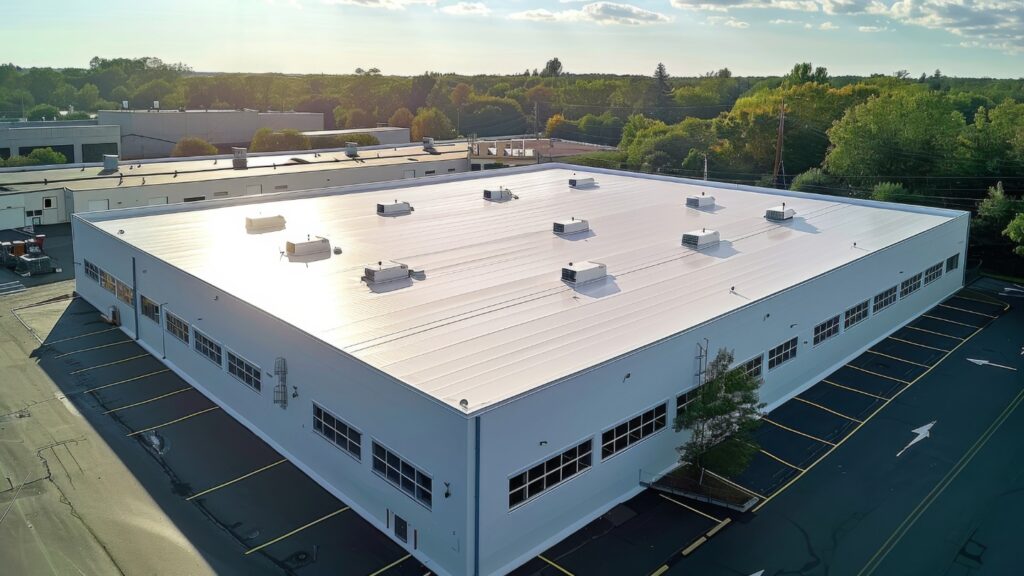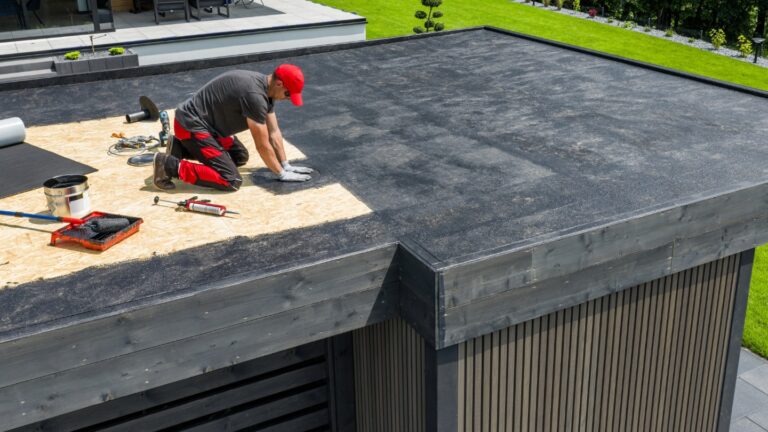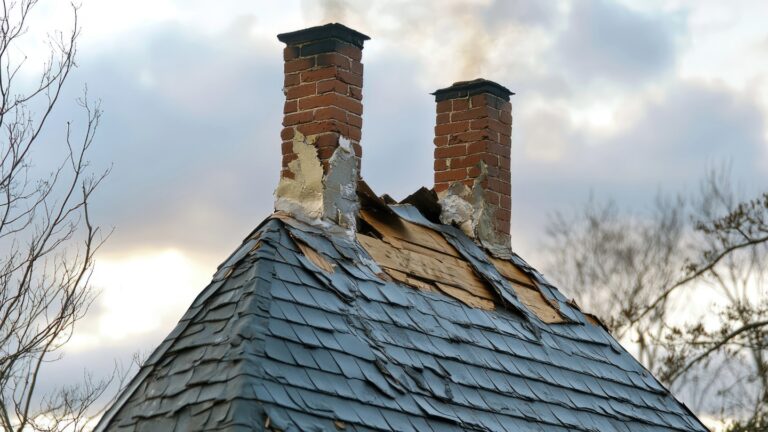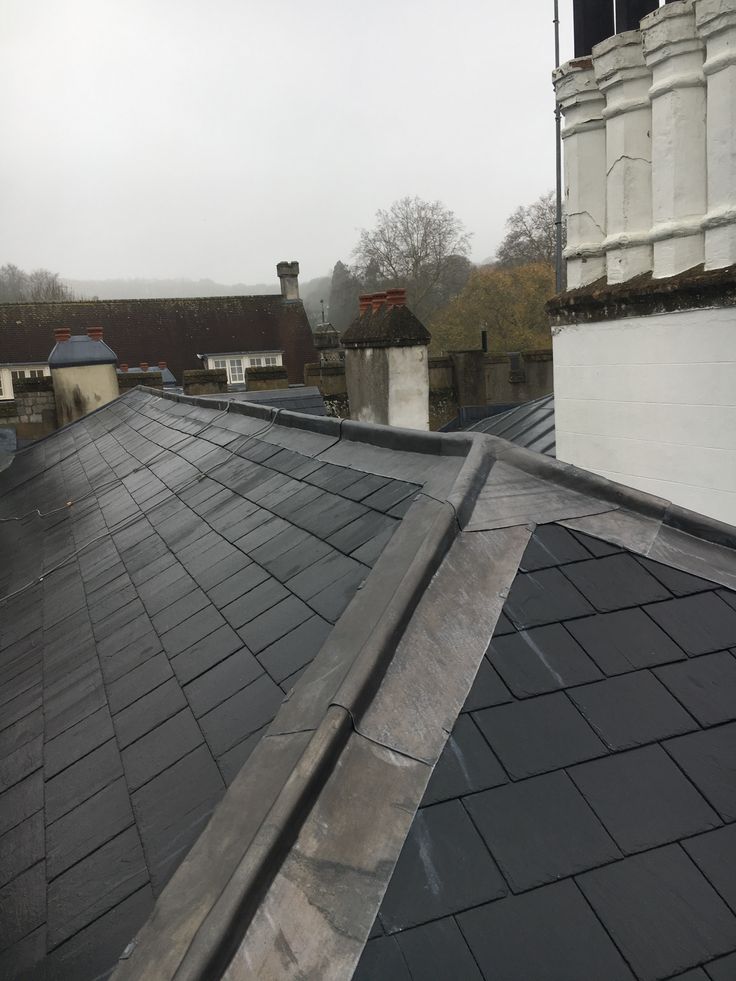Living by the coast in Plymouth means your roof has a tough job. The salty air, the strong winds, and the unpredictable weather can really put a strain on things. That’s where choosing the right flat roofing solution comes in. We’re going to chat about what makes Plymouth’s climate so unique for roofs and how modern flat roofing systems are a brilliant answer, especially when you’ve got local experts on the case. It’s all about keeping your home or business protected, no matter what the weather throws at us.
Key Takeaways
- Plymouth’s coastal weather, with its salty air and strong winds, requires tough roofing solutions.
- Modern flat roofing systems, like PVC and EPDM, offer great durability and weather resistance for coastal areas.
- Choosing materials that can handle salt spray is important for seaside homes in Plymouth.
- Proper installation by local experts who know Plymouth’s buildings is vital for a leak-free roof.
- Regular maintenance and timely repairs are key to making your flat roof last longer in Plymouth’s climate.
Choosing Flat Roofing Solutions for Plymouth’s Climate
Understanding Plymouth’s Unique Weather Demands
Living in Plymouth means you’re pretty much used to the weather doing its own thing, right? We get the full package: chilly winters with plenty of snow and wind that can really whip in off the coast, followed by those sticky, humid summers. This kind of climate really puts your roof through its paces. It needs to be tough enough to handle heavy snow loads and ice without a fuss, and also stand up to the relentless sun and rain. Picking the right roofing material isn’t just about looks; it’s about making sure your home stays protected year after year. It’s a bit like choosing the right coat for the season – you wouldn’t wear a light jacket in a blizzard, would you? Your roof needs that same level of sensible planning.
The Benefits of Modern Flat Roofing Systems
Flat roofs have come a long way, and the modern systems available today are a world apart from what people might imagine. They’re not just for commercial buildings anymore; they’re a really smart choice for homes too, especially with Plymouth’s weather. For starters, they’re incredibly durable. Think about materials like PVC membranes – they’re built to last and can handle pretty much anything the weather throws at them. Plus, many of these modern flat roofs are designed to be reflective. This means they can actually help keep your home cooler in the summer, cutting down on those energy bills. It’s a win-win: good for your wallet and good for the planet.
Here’s a quick look at why they make sense:
- Durability: Built to withstand harsh weather, including snow, wind, and rain.
- Energy Efficiency: Reflective surfaces can significantly reduce cooling costs.
- Low Maintenance: Generally require less upkeep compared to some other roofing types.
- Versatility: Can accommodate features like green roofs or solar panels.
Expertise Tailored for Plymouth Properties
Plymouth has a bit of everything when it comes to buildings, doesn’t it? You’ve got your older, charming homes and then the newer, more modern places. Each type of building, and its specific location near the coast, means the roof needs a slightly different approach. It’s not a one-size-fits-all situation. That’s where having local roofers who really know Plymouth comes in handy. They understand the local building styles, the specific challenges the coastal air brings, and what materials will actually stand the test of time here. Getting advice from someone who’s seen it all in Plymouth is pretty much priceless. They can guide you towards the best flat roofing solution that not only looks good but will actually perform brilliantly against our unique weather patterns, protecting your home for the long haul.
Durable Flat Roofing Materials for Coastal Plymouth
When you’re thinking about a flat roof for your place in Plymouth, especially with that salty sea air and the changeable weather, picking the right stuff is pretty important. You don’t want something that’s going to fall apart after a couple of seasons, right? Luckily, there are some cracking options out there that are built to last.
PVC Membranes: A Top Choice for Durability
PVC, or polyvinyl chloride, is a real workhorse when it comes to flat roofing. It’s a single-ply membrane that’s really tough and can handle a lot. Think about it – it needs to deal with Plymouth’s wind, rain, and even the occasional bit of sunshine beating down. PVC membranes are brilliant at resisting punctures and tears, which is a big plus if you’ve got trees nearby or if birds like to hang out on your roof. Plus, they’re really good at staying waterproof, even when things get a bit extreme.
EPDM and TPO: Resilient Coastal Options
EPDM (ethylene propylene diene monomer) and TPO (thermoplastic polyolefin) are other popular choices, and for good reason. EPDM is a rubber membrane that’s known for its flexibility and ability to withstand UV rays and extreme temperatures. It’s been around for a while and has a solid track record. TPO, on the other hand, is a bit newer and is often seen as a more energy-efficient option, especially the white versions that reflect sunlight. Both are designed to be tough and stand up to the elements, making them solid contenders for a coastal climate like ours.
Salt-Resistant Materials for Seaside Homes
Living by the sea means dealing with salt. Salt spray can be pretty corrosive over time, so choosing materials that can handle it is key. While PVC, EPDM, and TPO are generally quite resistant, some specific formulations or installation techniques can make them even better suited for a seaside environment. It’s worth chatting with your roofer about how the materials will cope with the salt and what measures can be taken to maximise their lifespan. Getting the right material means your roof will look good and do its job for years to come.
Here’s a quick look at how some common flat roofing materials stack up:
| Material | Key Benefits for Coastal Plymouth |
|---|---|
| PVC | Excellent puncture resistance, good UV stability, highly waterproof |
| EPDM | Very flexible, good UV and ozone resistance, proven durability |
| TPO | Reflective (energy efficient), good chemical resistance, durable |
When you’re picking materials for a flat roof in Plymouth, think about more than just the initial cost. You need to consider how well it’ll cope with the wind, the rain, the salt, and the sun over the next 15-20 years or more. A slightly more expensive material that lasts longer and needs fewer repairs can actually save you money in the long run.
Expert Flat Roofing Installation in Plymouth
Meticulous Craftsmanship for Lasting Protection
Getting a flat roof put on your place in Plymouth isn’t just about slapping some material down. It’s a proper job, especially with our coastal weather throwing everything it’s got at us. We’re talking about making sure every single bit is done right, from the ground up. The way your roof is installed makes a massive difference to how long it lasts and how well it keeps the rain out. It’s not just about the materials you pick, but how they’re put together. Think of it like building a really sturdy ship – every plank, every nail, has to be perfect to handle the sea.
Addressing Architectural Diversity in Plymouth
Plymouth’s a bit of a mix, isn’t it? You’ve got your older, charming houses and then the newer, more modern builds. Flat roofs can work on pretty much all of them, but the installation needs to be tweaked. A flat roof on a Victorian terrace will look and be fitted differently to one on a new build commercial unit. We’ve got to consider:
- The existing structure of your building.
- How the roof will connect to walls and other features.
- What kind of look you’re going for.
- Any specific local planning rules.
Ensuring Seamless, Waterproof Roofs
This is the big one, really. A flat roof needs to be completely watertight. There’s nowhere for water to run off quickly like on a sloped roof, so any weak spots are going to cause trouble. We pay close attention to:
- Joints and Edges: Making sure all seams and where the roof meets the walls are sealed up tight. This is where most leaks start if it’s not done properly.
- Drainage: Getting the slope just right so water actually goes where it’s supposed to – into the gutters or downpipes. Even a tiny bit of standing water over time can cause problems.
- Ventilation: Sometimes, you need to let air circulate under the roof to stop dampness building up, especially in older buildings.
When we’re installing a flat roof, we’re not just thinking about today. We’re thinking about the next 10, 20, even 30 years. It’s about building something that’s going to stand up to the wind, the rain, and everything else Plymouth’s coast can throw at it, without you having to worry.
Maintaining Your Flat Roof in Plymouth
Right then, let’s talk about keeping your flat roof in tip-top shape here in Plymouth. It’s not exactly a walk in the park with our coastal weather, is it? You’ve got the salty air, the wind, and the rain – sometimes all at once! Regular checks are your best mate for a long-lasting roof. It might sound like a chore, but a bit of attention now can save you a heap of bother (and cash) later on.
Proactive Maintenance for Longevity
Think of it like looking after your car. You wouldn’t just ignore it until it breaks down, would you? Your roof needs a similar approach. A good routine inspection, maybe once or twice a year, is a smart move. We’re talking about looking for any obvious bits of debris that have gathered, like leaves or twigs, especially around drains and gutters. These can cause blockages, and nobody wants water pooling where it shouldn’t be.
Here’s a quick rundown of what to keep an eye on:
- Drainage: Make sure all your outlets and gutters are clear. Standing water is a flat roof’s worst enemy.
- Surface: Check for any splits, blisters, or loose sections on the membrane. Small issues can grow if left.
- Edges and Flashings: These are often the first places to show wear. Look for any lifting or damage around the edges and where the roof meets walls or pipes.
- Debris: Clear off any fallen branches, leaves, or other bits that could cause damage or block drainage.
Timely Repairs to Prevent Damage
Spotting a small problem early is key. If you see a tiny crack or a bit of lifting, get it sorted pronto. It’s much easier and cheaper to fix a small snag than to deal with a big leak that’s caused water damage inside your home. We’re talking about things like:
- Minor membrane tears: These can often be patched up quite simply.
- Loose flashing: Re-sealing or re-securing flashing stops water from getting underneath.
- Punctures: If something sharp has made a hole, it needs immediate attention.
Don’t underestimate the power of a quick fix. What seems like a minor issue today can turn into a major headache, complete with water stains on your ceiling and potential structural problems, if you just leave it. Getting a professional to take a look when you first notice something isn’t quite right is always the best plan.
Strategic Upgrades for Enhanced Performance
Sometimes, maintenance isn’t enough, or you might want to give your roof a bit of a boost. Upgrading certain elements can make a big difference, especially with Plymouth’s weather. For instance, if your current roof isn’t very reflective, adding a coating that bounces sunlight away can help keep your home cooler in the summer. This is a great way to improve your home’s energy efficiency without a full replacement. Thinking about adding better insulation underneath or improving the drainage system can also be smart upgrades that pay off in the long run, making your home more comfortable and protecting your investment.
Energy Efficiency with Flat Roofing Plymouth

When you’re thinking about a new flat roof for your place in Plymouth, it’s not just about keeping the rain out. These days, a roof can do a lot more, especially when it comes to saving you a bit of cash on your energy bills. Plymouth’s weather can be a bit of a mixed bag, with those warm, humid summers and chilly winters. A well-chosen flat roof can make a real difference in how comfortable your home or business stays, and how much you spend keeping it that way.
Reducing Cooling Costs with Reflective Surfaces
One of the cleverest things about modern flat roofing materials, particularly PVC membranes, is their ability to reflect sunlight. Think of it like wearing a light-coloured shirt on a hot day – it keeps you cooler. These reflective surfaces bounce a good chunk of the sun’s rays back up into the sky, rather than letting them soak into your building and heat it up. This can significantly cut down on how much you need to run your air conditioning during those warmer months. It’s a simple idea, but it works wonders for keeping your space cool and your electricity bills down. It’s a smart move for any property owner looking to beat the summer heat without breaking the bank.
Improving Insulation for Year-Round Comfort
Beyond just reflecting heat, a good flat roof system is all about proper insulation. Having a well-insulated roof means that in the winter, the warmth from your heating system stays inside where it belongs, and in the summer, the cool air from your AC doesn’t escape so easily. This creates a more stable and comfortable temperature inside your building all year round. It’s not just about comfort, though; better insulation means your heating and cooling systems don’t have to work as hard, which again, leads to lower energy consumption. We’ve seen how important this is for properties in the area, and getting the insulation right is key.
Sustainable Roofing for Plymouth Homes
Choosing a flat roof can also be a step towards a more sustainable way of living. Many of the materials used in modern flat roofing systems are designed with the environment in mind. Their durability means they last a long time, reducing the need for frequent replacements and the waste that comes with it. Plus, as we’ve mentioned, the energy-saving aspects contribute to a smaller carbon footprint. It’s about making choices that are good for your wallet and good for the planet. When you’re looking at options, it’s worth considering how long-lasting and eco-friendly the materials are. You can find out more about durable flat roof solutions that are built to last.
When it comes to energy efficiency, the right flat roofing system acts like a thermal blanket for your building. It works hard to keep heat out in the summer and in during the winter, making your property more comfortable and your energy bills more manageable. It’s a win-win for your home or business and the environment.
Commercial Flat Roofing Expertise in Plymouth

Running a business in Plymouth means your building needs to stand up to whatever the coast throws at it. That’s where we come in. We get that for commercial properties, a roof isn’t just about keeping the rain out; it’s about protecting your assets, keeping your staff and customers comfortable, and making sure your business operations aren’t interrupted. We specialise in flat roofing solutions that are built to last in this unique seaside environment.
Low-Maintenance Solutions for Businesses
Nobody wants to be dealing with constant roof repairs when they’ve got a business to run. We focus on materials and installations that minimise the need for fuss. Think tough, resilient membranes that can handle the salty air and strong winds without breaking a sweat. We’re talking about systems that are designed for longevity, so you can concentrate on your business, not your roof.
Protecting Commercial Properties from the Elements
Plymouth’s weather can be pretty intense. We’ve seen it all – driving rain, fierce winds, and the occasional heavy snowfall. Our commercial flat roofing services are all about providing a robust shield. We use materials known for their durability and resistance to coastal conditions. This means fewer leaks, less damage from storms, and a building that stays protected, year in and year out.
Enhancing Property Value with Modern Roofs
A well-maintained, modern flat roof isn’t just practical; it can actually add value to your commercial property. It shows potential buyers or tenants that the building is well looked after and has been updated with reliable systems. Plus, with energy-efficient options, you can even bring down those running costs, making your property more attractive and cost-effective.
Here’s a quick look at what makes our commercial flat roofs a smart choice:
- Weather Resistance: Built to withstand Plymouth’s coastal storms and winds.
- Longevity: High-quality materials mean fewer replacements and repairs.
- Low Upkeep: Designed for minimal maintenance, saving you time and money.
- Energy Savings: Options available to help reduce your heating and cooling bills.
We understand that every business is different. That’s why we take the time to assess your specific needs and recommend the best flat roofing solution for your commercial property in Plymouth. Our goal is to provide a reliable, long-lasting roof that you can depend on.
Need a reliable roofer in Plymouth for your flat roof? We’ve got you covered! Our team offers top-notch service for all your flat roofing needs, ensuring your building stays dry and secure. Don’t wait for leaks to become a big problem. Visit our website today to learn more and get a free quote!
Wrapping Up Your Plymouth Roof
So, there you have it. Plymouth’s coast throws a lot at our roofs, from salty air to fierce winds and everything in between. Choosing the right flat roofing solution isn’t just about keeping the rain out; it’s about making a smart choice for your home or business that lasts. Whether you’re leaning towards those super-tough PVC membranes or another reliable option, remember that regular check-ups and a bit of TLC go a long way. Getting a professional opinion from local experts who really know this climate can save you a heap of hassle and money down the line. Don’t let your roof become a worry – get it sorted properly.
Frequently Asked Questions
What makes Plymouth’s weather so tough on roofs?
Plymouth’s right by the sea, so we get a lot of strong winds and salty air, which can be harsh. Plus, we have cold winters with snow and ice, and warm, humid summers. All this means our roofs have to be super tough to handle everything the weather throws at them!
Are flat roofs really good for a place like Plymouth?
Definitely! Modern flat roofs, especially ones made from materials like PVC, are brilliant for our climate. They’re built to be really strong, can handle heavy rain and snow, and some even reflect the sun’s heat, which is great for keeping your place cool in the summer and saving on your energy bills.
What’s the best material for a flat roof here?
Lots of people are choosing PVC membranes because they’re super durable and can stand up to our salty air and changeable weather really well. EPDM and TPO are also good options that are known for being tough and long-lasting against the elements.
How long does it usually take to get a new flat roof put on?
It really depends on the size of your roof and the type of material we’re using. For a standard flat roof, it might take a few days. We’ll give you a better idea once we’ve had a look at your place.
How often should I get my flat roof checked?
It’s a good idea to have it looked at at least once a year, and maybe again after a really big storm. Catching little problems early, like a small leak or some debris, can stop them from turning into big, expensive issues later on.
Can a flat roof help me save money on energy bills?
Yes, it can! Some flat roofing materials are designed to be reflective, meaning they bounce sunlight away instead of soaking it up. This helps keep your building cooler in the summer, so you won’t need to run your air conditioning as much, saving you money.




